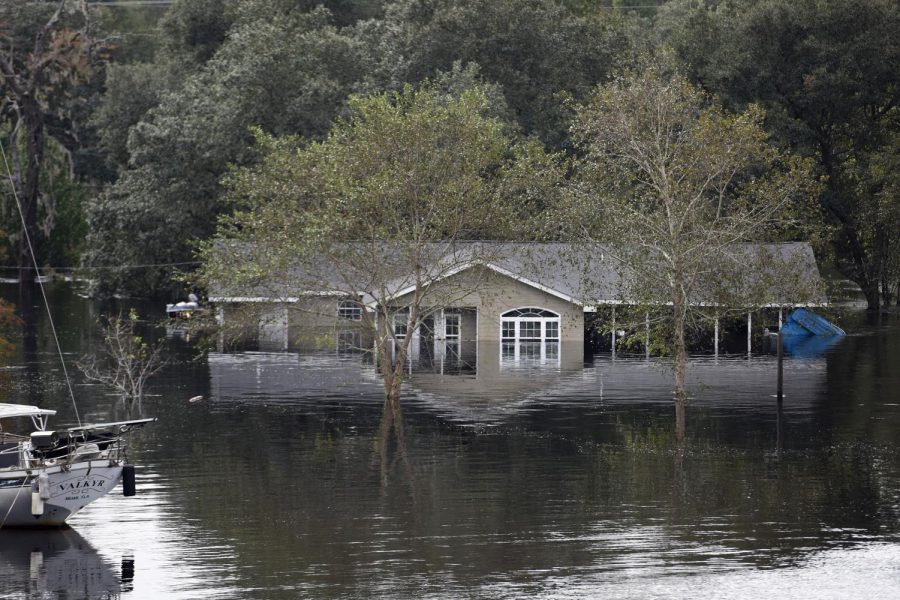Last week, Hurricane Florence hit the Carolinas as a Category one storm, leaving 37 dead and 343,000 without power. President Trump visited the Carolinas last Wednesday to assess the damages just days after the storm.
Hurricane Maria, a Category five storm, hit Puerto Rico and the Caribbean in mid-September 2017. Since then, the death toll has risen to nearly 3,000 people and power was just restored in August 2018. Trump did not visit the island until October.
The response to Hurricane Florence has been drastically better than that to Hurricane Maria. In Trump’s opinion, this is because Puerto Rico’s infrastructure and electrical system were poor to begin with, and the island is isolated from relief aid coming from the states. Likewise, the United States Government Accountability Office claims that the timing of Maria, which occurred during a period of global disasters, created a shortage of qualified employees who were available to go to Puerto Rico, prolonging the rebuilding efforts. Although these reasons may have factored into the lasting conditions, subtler actions can be examined to explain why the damages in Puerto Rico grew to be as drastic as they did.
The sorrowful response to Hurricane Maria can be traced back through history to when the United States won control of the island and made it a territory in 1898. In 1901, a U.S. Supreme Court case, Downes v. Bidwell, decided that U.S. territories did not have full protections from the U.S. constitution. This decision allowed the United States to continue colonizing the territories for their resources without worrying about the people living there. The colonization and economic use of territories like Puerto Rico and the Philippines is still very present today.
However, people from territories like Puerto Rico are still granted citizenship to the United States, even though they do not get full constitutional protection, like the ability to vote in presidential elections. Many Americans do not recognize that Puerto Rico is a U.S. territory. A poll by the New York Times reveals that roughly 50 percent of Americans are unaware that Puerto Ricans are U.S. citizens. This lack of knowledge encourages the idea that Puerto Rico is a far-off, foreign land and makes it easier for people to ignore the economic turmoil that its citizens are facing after the storm over a year ago.
Trump’s and the United States’ response to the trouble facing the small island is a great example of the subtle institutional racism that exists in our country. Looking at the quick responses to the hurricane that hit North and South Carolina compared to the degrading and lacking response to Hurricane Maria, it is clear who the president is prioritizing. The majority of people living in Puerto Rico are non-white, while 68.5 percent of people in South Carolina and 70.8 percent of people in North Carolina are white. Trump’s opinion on people of Hispanic or Latino descent has already been demonstrated through his horrific treatment of immigrants and his obsession with building a wall between the U.S. and Mexico. His inherent tendency to blame those in need for their troubles is present in this situation when he blamed the infrastructure and complicated electrical system in Puerto Rico as the cause for all the chaos.
However, taking another look at the history of colonization in Puerto Rico, the United States’ role, or lack thereof, has had a huge impact on the poor economy and structure of the island. If the United States had spent more time and money taking care of the area and paying attention to the problems present before the storm, then hundreds of lives and millions of dollars in damages could have been saved. Unfortunately, the current administration of the United States does not seem to have plans to treat the territory, and others like it, with more humanity in the future.
Clara Goldberg is a Collegian columnist and can be reached at [email protected].



















